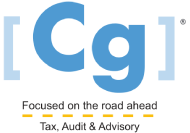
If you run a business, you understand the importance of financial integrity and the potential risks associated with fraudulent activities. Thankfully, there are practical ways to protect your business from financial malfeasance. Assistance from an experienced forensic accountant is essential in discovering possible financial fraud.
At Cg, companies of all sizes have long trusted us for our outstanding forensic and other accounting services. We’re proud to provide invaluable assistance in pressing matters such as fraud mitigation. Get in touch with us today to find out more about what we can do for you, or read more below on how forensic accountants work to help stop fraud.
Understanding Financial Fraud
In today’s complex landscape, it can be difficult for business owners to monitor every aspect of their finances at once. This means that fraud poses a significant threat to businesses, with some studies suggesting up to 63% of businesses are the victims of fraud every year. Such malicious activities can severely impact a company’s financial stability, reputation, and even its survival.
What is Financial Fraud?
Financial fraud is any deliberate and deceptive act or scheme carried out with the intention of obtaining financial gain through fraudulent means. Different kinds of fraud might involve manipulating, misrepresenting, or falsifying financial information or transactions for personal or organizational benefit.
What Kinds of Financial Fraud are Common?
In the business world, common types of financial fraud include embezzlement, or misappropriation of funds or assets; financial statement fraud, which is the manipulation of records and statements; and identity theft, which is the unlawful use of personal information. More elaborate forms of malfeasance that are still common include Ponzi schemes as well as insider trading, which involves the exploitation of non-public information for securities trading.
Although these well-known fraudulent schemes can cost American businesses billions each year, modern technologies make it possible for new frauds and scams to arise, which is why Cg’s forensic accounting team is always well-informed about the workings of sophisticated new schemes and how to deal with them.
Implications and Consequences of Financial Fraud
Financial fraud can have severe implications for individuals, businesses, and the overall economy. Immediate consequences may include financial losses, reputational damage, legal action, and criminal charges. Individuals convicted of fraud may face heavy penalties like fines, restitution payments, asset seizures, or even imprisonment, depending on the nature of the crime and the jurisdiction.
Skills and Qualifications of Forensic Accountants
-
Educational Requirements
Forensic accountants typically hold a bachelor’s degree in accounting, finance, or a related field. Advanced degrees or certifications, such as a Master’s in Accounting or a CPA designation, also provide additional qualifications. Cg’s forensic accounting team is highly qualified, with the kind of specialized training required to best serve you.
-
Key Skills and Knowledge
Forensic accountants must possess strong accounting proficiency, investigative skills, attention to detail, analytical thinking, and effective communication skills.
-
Professional Certifications
Certifications such as Certified Fraud Examiner (CFE), Certified Forensic Accountant (Cr.FA), and Certified in Financial Forensics (CFF) validate the expertise and credibility of forensic accountants in fraud detection and investigation. At Cg, our own team members hold certifications like these and have the practical experience needed to see investigations into financial irregularities through to an accurate conclusion.
Techniques and Tools Used in Financial Fraud Detection
Forensic Accounting Software Tools
Forensic accountants employ a range of tools and software to investigate and analyze financial data. This includes data analysis tools, computer forensics tools, data mining and predictive analytics softwares.
Investigative Techniques
When it comes to investigating financial fraud, forensic accountants use various techniques to build their findings. They conduct thorough examinations of financial records, interview relevant parties, and gather evidence to build a comprehensive case.
How Data Analysis and Computer Forensics Help in Detecting Financial Fraud
With the aid of advanced data analysis methods, such as statistical modeling and predictive analytics, forensic accountants can identify abnormal financial patterns, outliers, or trends that indicate potential fraudulent activities.
Computer forensic techniques are useful in examining digital evidence, such as email communications, electronic documents, and financial transactions, to uncover traces of fraud or unauthorized activities.
Investigative Process for Detecting Financial Fraud
Detecting financial fraud requires a systematic and thorough investigative process. Here’s a step-by-step approach forensic accountants may use to uncover fraudulent activities and gather evidence.
Step-by-Step Process for Investigating Fraud
#1. Initial Assessment: First, forensic accountants begin by assessing the situation and identifying potential red flags or irregularities in financial records.
#2. Gathering Evidence: They collect relevant financial documents, such as bank statements, invoices, and contracts, and analyze them for inconsistencies, discrepancies, or fraudulent activities.
#3. Data Analysis: After gathering enough evidence, they utilize specialized tools and techniques to analyze financial data, looking for patterns, anomalies, or suspicious transactions that indicate fraudulent behavior.
#4. Interviews: Their next action will be interviewing employees, management, and other stakeholders to gather information, clarify discrepancies, and gain insights into what may have been targeted by possible fraud schemes.
#5. Collaboration with Legal Professionals: As needed, forensic accountants can collaborate with legal professionals to ensure the proper handling of evidence and assist in potential legal proceedings.
#6. Fraud Report: They also prepare comprehensive reports that outline their findings, including the nature of the fraud, the individuals involved, and the financial impact.
#7. Expert Testimony: At the end, forensic accountants may need to provide expert testimony in court, presenting their findings and explaining complex financial matters to support legal proceedings. Many of the professionals at Cg’s Litigation & Valuation Services group have a great deal of experience in testifying as expert witnesses in different kinds of financial cases.
No matter the size of your company, it’s essential to recognize the importance of forensic accounting services in protecting your business from financial fraud.
Take the necessary steps to safeguard your business by contacting us at Cg Tax, Audit and Advisory today. We are committed to providing specialized guidance and support while helping to protect your financial interests.

